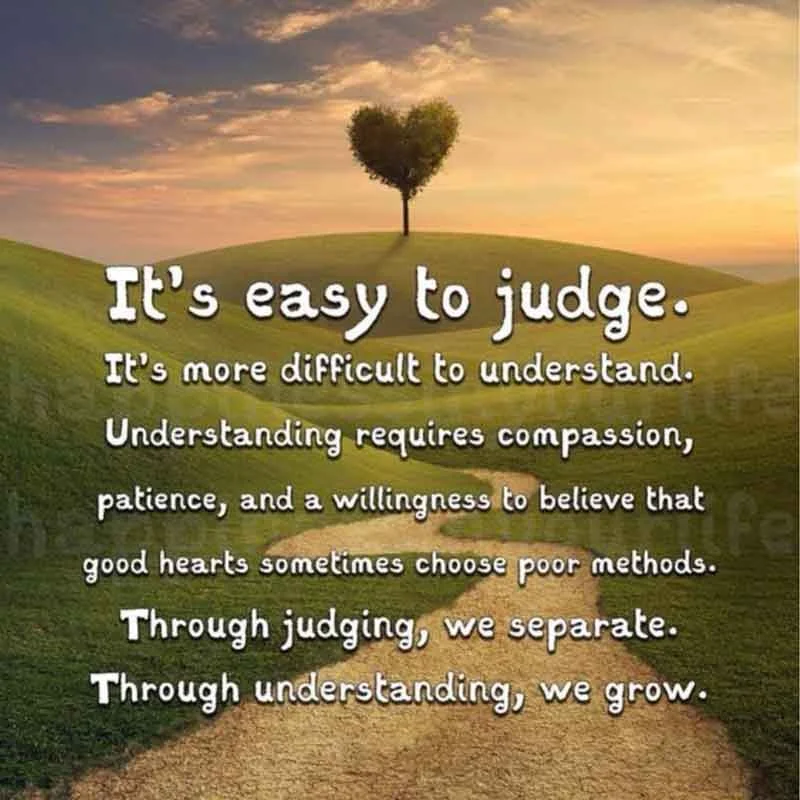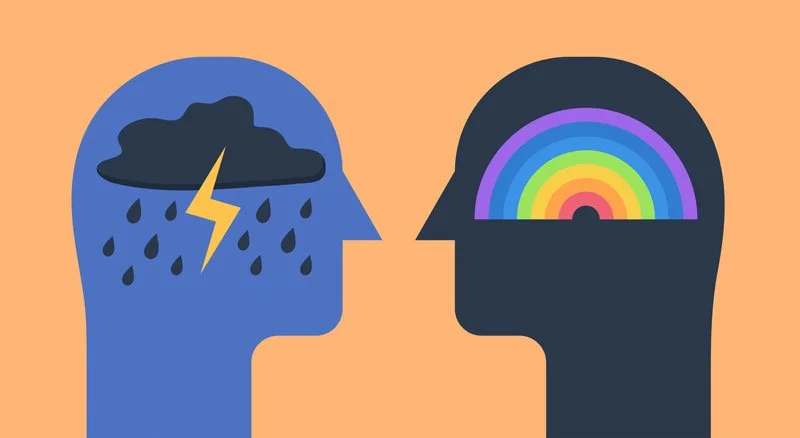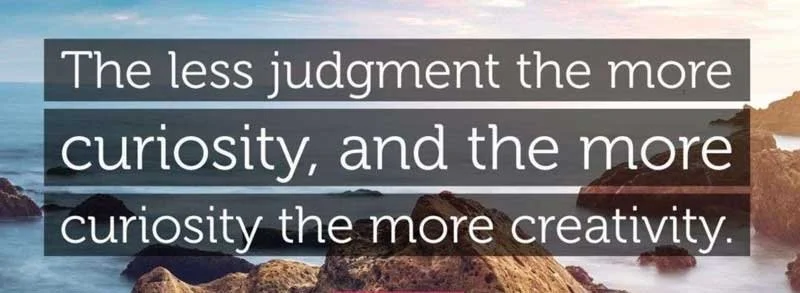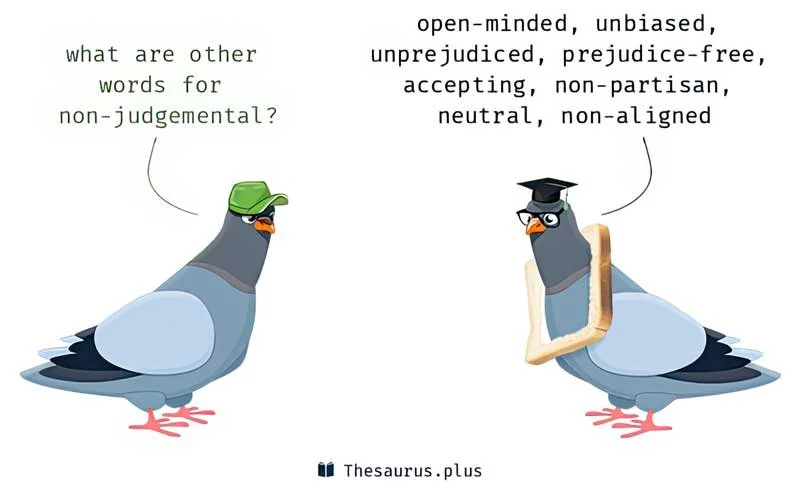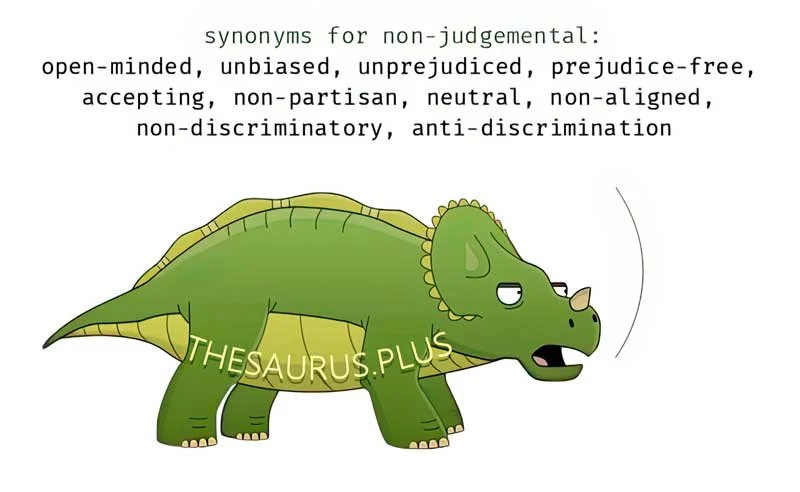HOW TO STOP BEING SO JUDGY
• READ •
HOW TO STOP BEING SO JUDGY
What You Can Do Instead
When my daughter was three years old, she ran away while I was paying for groceries. I was searching for my credit card and didn’t notice she had slipped out.
For twenty long minutes, I ran up and down the street shouting her name. Some people helped me look for her.
Others asked me how I could have let this happen.
At last, I found her—she had walked home all by herself, across seven city blocks. I hugged her and told myself, I will never judge anyone again.
Of course, that promise didn’t last very long.
We All Judge People
Whether we realize it or not, we make quick judgments about others all the time.
Scientists say that when we see someone new, our brains decide if that person seems friendly or not in less than a tenth of a second—before we even know we’ve made up our minds!
Dr. Piercarlo Valdesolo, who runs the Moral Emotions and Trust Lab at St. Olaf College, says this happens “when you’re barely aware that you’ve even seen an image.”
Sometimes, judging others helps us stay safe.
But if we make a habit of putting people down or assuming the worst, it can have bad effects.
Dr. Sanam Hafeez, a brain and behavior expert in New York City, explains that constant judging can shrink our empathy, close our minds to new ideas, and make us react too quickly instead of thinking things through. Research even shows that the more we judge, the worse we tend to feel ourselves.
So how can we stop being so judgy? Experts have some helpful ideas.
1. Notice When You’re Judging
The first step is simply to catch yourself. Dr. Hafeez says it takes “a vigilant eye” to tell the difference between noticing something and judging it.
Maybe you see someone dressed in a way you wouldn’t choose, or a classmate who always interrupts. Before you let a negative thought take over, try to pause. Ask yourself:
Why does this matter to me?
Am I just observing, or am I adding my own opinions?
Is this really about the other person—or about how I feel about myself?
Even adults need to stop and “check in” sometimes before deciding what they think about someone else.
2. Explore Your Own Reactions
Often, judging others reveals more about us than about them.
Dr. Hafeez explains that when we look down on someone, it can be our way of making ourselves feel right or safe.
Therapist Erica Schwartzberg shares an example from her own life. She doesn’t drink alcohol anymore, and sometimes she notices herself judging people who do. “I’ll think, ‘Why do they need that third drink? That seems messy,’” she said. “But when I stop and think, I realize this judgment isn’t really about them. It’s about me.” Watching someone else do something you’ve chosen not to do can stir up your own feelings and make you uncomfortable.
Sometimes, our judgments hide emotions like envy—wanting what someone else has. Dr. Valdesolo says envy can make us criticize people who seem lucky or talented, as a way to pull them down instead of lifting ourselves up.
When you catch yourself judging, try asking: What is this feeling really about? Maybe it’s fear, jealousy, or insecurity pretending to be disapproval.
3. Trade Judgment for Curiosity & Empathy
Here’s a trick: when you feel the urge to judge, try getting curious instead.
Dr. Hafeez suggests asking questions like:
What might this person be going through?
What could I be missing or misunderstanding?
Curiosity helps you imagine someone else’s story. Maybe your classmate who never turns in homework isn’t lazy—maybe they’re caring for a younger sibling or dealing with a tough situation at home.
When you replace judgment with curiosity, you make room for empathy—the ability to understand and share another person’s feelings. “Question instead of presume,” Dr. Hafeez says.
In other words, ask before assuming.
Schwartzberg agrees. She says that when you stay curious instead of judging, you “make room for the complexity that lives in all of us—including ourselves.”
4. Remember That Everyone Is Human
Even people who try hard not to judge sometimes slip up. I still do.
At my child’s band concert recently, I noticed the parents sitting in front of me. Every single one of them was on their phone. I whispered to my friend, “Why even come if you’re just going to stare at a screen?”
She whispered back, “Who cares?”
And she was right. Maybe those parents were texting grandparents who couldn’t attend, or recording video for someone at home. I didn’t know their reasons. I was judging again.
The truth is, we never really know what someone else is facing. By slowing down, checking our reactions, and getting curious, we can be kinder—to others and to ourselves.
5. Practice, Don’t Perfect
Learning not to judge isn’t about being perfect. It’s about noticing, pausing, and trying again next time.
If you catch yourself judging someone, that doesn’t mean you’ve failed. It means you’ve noticed—and that’s the first and biggest step toward change.
So next time you feel the gavel in your hand, ready to declare someone “wrong,” take a breath. Try to replace judgment with a question, or even a bit of compassion. You might be surprised by how much lighter you feel.
Assume (v.): to believe something is true without proof.
Behavior (n.): the way someone acts.
Character (n.): the kind of person someone is; their qualities and traits.
Compassion (n.): caring about and wanting to help others who are suffering.
Condemn (v.): to strongly judge or say something is wrong.
Curiosity (n.): the desire to know or learn more.
Empathy (n.): the ability to understand and share another person’s feelings.
Envy (n.): a feeling of wanting what someone else has.
Gavel (n.): a small hammer used by a judge to call for attention or make decisions in court.
Insecure (adj.): unsure of yourself; lacking confidence.
Judgmental (adj.): quick to criticize or find fault with others.
Observe (v.): to watch carefully.
Perspective (n.): a way of seeing or thinking about something.
Presume (v.): to believe something is true before you know all the facts.
Psychologist (n.): a person who studies how people think, feel, and behave.
Reaction (n.): how someone responds to a situation or event.
Receptive (adj.): willing to listen to or accept new ideas.
Research (n.): careful study done to learn new facts or information.
Secure (adj.): feeling safe and confident.
Vigilant (adj.): watchful and alert, paying close attention.
► COMPREHENSION QUESTIONS
— please answer with complete sentences
Why did the writer (the narrator) promise she’d never be judgmental again?
The writer (narrator) says the promise she made to herself didn’t last long.
Why not do you think?
When we meet someone new, how quickly do we decide whether they might be friendly or not?
When is it a good idea to make a quick assessment as to whether someone is friendly or dangerous?
Constant judging—being judgmental all the time—can do what three things to us?
Hint: Look for what Dr. Sanam Hafeez says.
What’s the first thing (#1) we can do to become less judgmental?
How might judging others reveal more about us than about them?
What the third suggestion (#3) for becoming less judgmental?
“Everyone is human.”
How does it help us be less judgy?
Imagine someone who want to be less judgy. But often they find themselves becoming judgmental. They don’t think they’ll ever be non-judgemental.
What’s your best advice for this person?
A+ BONUS QUESTION: Without using anyone’s name, describe when you’ve been judgy and what you might have done instead.

